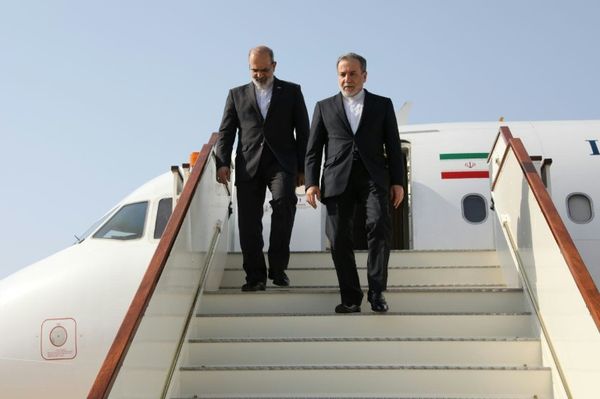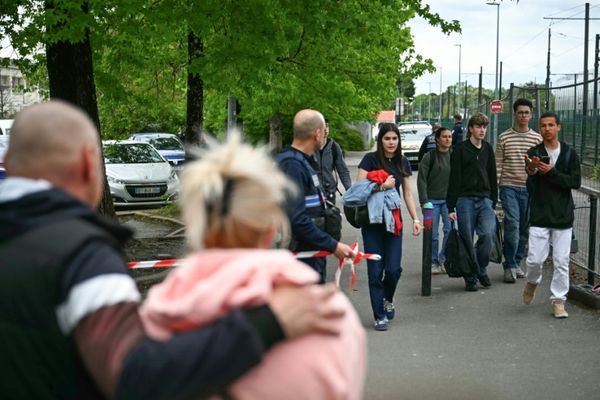Further violence between Israel and Iran’s allies Hezbollah and Hamas could ignite a devastating regional conflict, the United Nations has warned, after an Israeli airstrike in Beirut killed at least 14 people including a senior Hezbollah leader and wounded 66.
The strike killed Ibrahim Aqil, a figure on the group’s top military council who was wanted by the US for his alleged connection with the 1983 bombing of the US embassy in Beirut.
Israel said Aqil, the leader of Hezbollah’s elite Radwan special forces, was killed along with 10 other senior commanders of the unit. Hezbollah confirmed the death of Aqil, who it described as one of its top leaders, saying he had led a “blessed life of jihad”.
It was the latest in a series of attacks that rocked Lebanon this week, after an extraordinary two-stage operation that made thousands of pagers and walkie-talkies commonly carried by Hezbollah members explode simultaneously. The operation, presumed to have been carried out by Israel, left more than 3,000 people wounded and at least 42 dead.
Late on Friday, UN political affairs chief Rosemary DiCarlo said: “We risk seeing a conflagration that could dwarf even the devastation and suffering witnessed so far.”
Speaking at a meeting of the UN security council which had been convened to discuss Israel’s attacks, DiCarlo said: “It is not too late to avoid such folly. There is still room for diplomacy. I also strongly urge member states with influence over the parties to leverage it now.”
Robert Wood, the deputy US ambassador to the UN, repeated Washington’s assertions that the US had played no role in the attacks and called on all parties to “refrain from any actions which could plunge the region into a devastating war”.
Israel’s defence minister, Yoav Gallant, had earlier said Israel’s attacks would continue, writing on X: “The sequence of actions in the new phase will continue until our goal is achieved: the safe return of the residents of the north to their homes.”
Friday’s attack was the third time Beirut, Lebanon’s capital, has been hit by an Israeli airstrike since fighting between Hezbollah and Israel started on 8 October last year after the former launched rockets “in solidarity” with Hamas’s attack the previous day.
Videos of the aftermath showed burnt cars and rubble thrown across the street from a building whose first two floors appeared to have been blown out. Lebanon’s National News Agency reported that four rockets had struck the building in Jamous, a residential area in southern Beirut, during rush hour.
The Lebanese Civil Defense asked citizens to remain indoors to keep roads clear for emergency workers transporting the wounded to hospitals. Lebanese people shared pictures of loved ones who had gone missing in the aftermath of the strike, attaching their phone numbers in case anyone had seen them.
On Thursday night there was the most intense series of Israeli airstrikes carried out in south Lebanon since October. Israeli warplanes carried out dozens of strikes on border villages across the south, marking what the Israeli defence minister, Yoav Gallant, said was the beginning of a new phase in the war.
Hassan Cheet, a first responder in the border village of Kafr Kila, said: “The destruction is as far as you can see. They brought down about 30 houses overnight. An entire neighbourhood was levelled.”
He shared pictures of flattened houses and rescue vehicles clearing rubble from the main road along the border fence with Israel, where emergency workers were accompanied by UN peacekeepers for their safety.
Cheet said: “Thank God there were no civilians or human losses. The rest can be dealt with.”
In response to the Israeli barrage, Hezbollah launched more than 100 rockets at northern Israel on Friday morning, hitting Israeli military bases in the occupied Golan Heights.
In Beirut, weary doctors braced themselves for another barrage of wounded after hearing the news of Friday’s attack.
“Truly, we’ve been working around the clock. We’ve done 50 surgeries in the past two-and-a-half days, and we only have three rooms because you need specialised microscopes to operate,” said Sami Rizk, the chief executive of LAU Medical Center-Rizk hospital.
The pager and walkie-talkie explosions that ripped through Lebanon brought thousands of patients to hospitals in just a few hours. Doctors described apocalyptic scenes in emergency rooms, where overwhelmed staff had to treat patients on the floor due to lack of available beds.
Many patients had lost hands and eyes. Most were reaching for their pagers or had brought them to their face when they exploded.
“This is to us is a new type of war where it is one specialty that is necessary: ophthalmology,” Rizk said. “In war cases, ophthalmologists are used 5 to 10% of the time; here it was over 90%.” He added that it was as if he was looking at “the same patient” over and over.
The resulting injuries would be long-lasting and require lifelong care, Rizk said. “No more fingers and no more eyes: this will be tough in the long term. It’s going to be a heavy burden on the society and these poor young guys.”
Volker Türk, the UN’s high commissioner for human rights, on Friday denounced the attacks, saying that they violated international law and could constitute a war crime.
“International humanitarian law prohibits the use of booby-trap devices in the form of apparently harmless portable objects,” Turk told the security council, adding: “It is a war crime to commit violence intended to spread terror among civilians.”
For Lebanon’s health officials, the attacks functioned as a grim stress test of the healthcare sector, which had been preparing for mass-casualty events since the war began in October.
Firass Abiad, the Lebanese health minister, said: “The health sector in Lebanon has been tested and has always been found able to respond. The Lebanese health sector is really a resilient health system.”
He said that despite the country’s five-year-long economic crisis, it has been able to cope with successive crises such as Covid-19 and the 2020 Beirut port blast that wounded 7,000 and killed at least 218 people.
Despite successfully dealing with two massive attacks in one week, the health minister eyed the future warily, as Friday’s attack brought the possibility of a country-wide war with Israel ever closer.
“Does this mean that we need to keep putting it through the test? I hope not, and I hope we never find out which crisis will be sufficient to bring it to its knees,” Abiad said.
In the UK, the foreign secretary, David Lammy, discussed preparations to evacuate remaining Britons from Lebanon, having already urged UK nationals to leave the country given the hostilities with Israel.
He repeated the Foreign Office’s warning to British nationals, urging them to leave Lebanon “while commercial options remain”, as the situation “could deteriorate rapidly”.







